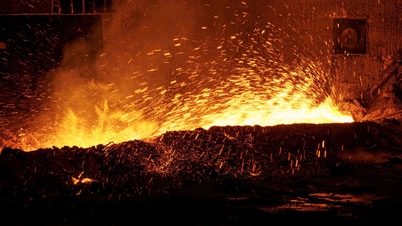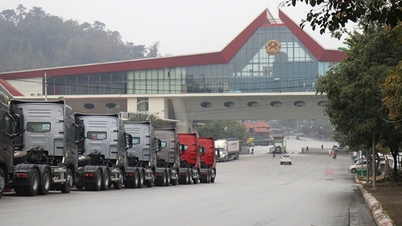Lack of sleep, lack of nutrients and over-exercising are all reasons for an elevated heart rate during light jogging.
Easy running is a basic exercise for all runners. They run at a comfortable level to relax their bodies. The exercise helps them relax, recover their muscles, heart rate, breathing, and regain energy for strenuous exercises.
Dr. Ruwanthi Titano, a cardiologist at Mount Sinai Health System (USA), said that regular runners have lower heart rates, whether at rest or during light to high intensity physical activity. There are also many cases where the heart rate spikes out of control or is not proportional to the speed. There are many factors that affect this index. Below are some reasons given by the Running Women website, explaining why the heart rate increases when running lightly.
Not really running light
Any increase in intensity stimulates the sympathetic nervous system, increasing the secretion of adrenaline, increasing blood pressure, heart rate, and breathing rate. When a runner switches from walking to running, the muscles need more oxygen to produce energy. At this time, the heart beats faster to pump more blood, increasing the amount of oxygen-rich blood pushed through the arteries.

Runners check their easy running speed by talking to friends. Photo: VM
However, over time, the body adapts to the intensity of exercise, reducing the burden on the cardiovascular system. "Stronger muscles will extract oxygen from the blood better, so at this time the runner does not need a high heart rate to provide energy," said Associate Professor, Dr. Elaine Wan, Department of Cardiology and Cardiac Electrophysiology, Columbia University.
To know if you are really running easy or not, runners can check by talking. Easy run is an exercise where runners can run and talk normally without panting. If you feel out of breath, you should adjust your speed.
Lack of sleep
Getting enough rest is essential to getting the most out of your workout. Poor sleep can affect your heart rate the next day. Lack of sleep disrupts your normal circadian rhythm, changing the levels of hormones like cortisol and adrenaline circulating in your bloodstream. This makes your heart more sensitive to changes in intensity, causing a greater increase in your running than usual.
Dehydration
Dehydration reduces the total amount of blood in the body. This causes the heart to pump less blood at each time, so it has to work harder to get enough blood to the muscles.

Runners replenish water during training and competition. Photo: VM
In addition, electrolyte levels also play an important role. Minerals such as sodium and potassium are essential for normal heart function. When there is a lack of water and electrolytes, the pH level in the blood also changes, which can trigger a faster heart rate. Therefore, runners need to replenish enough water and electrolytes before, during and after training and competition.
Anemia
Iron plays an important role in transporting oxygen from the lungs to the rest of the body. When this important mineral is lacking, the heart has to work harder to compensate, said Dr. Raffaele Corbisiero, runner, chairman of the electrophysiology department at the Deborah Heart and Lung Center (USA).
For people with anemia, doctors can diagnose the disease by checking iron and ferritin levels, then supplementing iron-rich foods and taking functional foods to solve the problem. Runners should have a habit of regular health check-ups and blood tests to know which groups of nutrients the body needs to supplement.
Pregnant women
Nurturing a baby in the womb requires a lot of blood, so the heart has to work harder to pump blood. In addition, the pregnant woman's hormones change, activating the parasympathetic nervous system, increasing the heart rate.
Most pregnant women's resting heart rate increases by 20 to 25 percent during pregnancy, and their heart rate also increases when running or exercising. So, for this group, keeping their heart rate below 140 while exercising makes no sense.
Overtraining
Physical and mental health are linked. When the body is stressed from overtraining, the hormones cortisol and adrenaline are released in greater amounts, leading to an increased heart rate. Overtraining increases both resting and active heart rates. It is especially dangerous during high-intensity exercise.

Overtraining increases heart rate both at rest and during activity. Photo: VM
Overactive thyroid
The thyroid gland in the neck releases hormones that regulate heart rate, blood pressure, and cholesterol. When it doesn't work properly, changes in heart rate occur.
An overactive thyroid, also known as hyperthyroidism, increases your heart rate, says Dr. Corbisiero. In addition to affecting your heart rate, hyperthyroidism can also lead to other heart problems, osteoporosis, eye problems, and fertility problems.
Runners should be checked and examined if they experience an increase in heart rate during light running, along with muscle weakness, heat intolerance, frequent bowel movements, and tremors in the hands and feet.
Taking certain medications increases heart rate
Medications such as asthma inhalers, antidepressants, and medications used to treat attention deficit hyperactivity disorder can increase heart rate.
Use products containing caffeine
Caffeine is a stimulant that increases adrenaline and sympathetic nervous system response, causing an increase in heart rate. In most cases, caffeine consumption is not a problem. However, taking more than 400 milligrams per day will increase side effects such as headaches, anxiety, and rapid heartbeat, and can even be dangerous.
For runners, it is necessary to monitor caffeine consumption to maintain a stable heart rate, to ensure safety during training and competition.
Lan Anh (according to Running Women )
Source link




![[Photo] Politburo works with the Standing Committee of the Party Committee of the Fatherland Front and Central organizations](https://vphoto.vietnam.vn/thumb/1200x675/vietnam/resource/IMAGE/2025/9/4/6f23e5c0f576484bb02b3aad08f9d26a)

![[Photo] Prime Minister Pham Minh Chinh chairs the thematic meeting on law making in August 2025](https://vphoto.vietnam.vn/thumb/1200x675/vietnam/resource/IMAGE/2025/9/4/ba42763cd48e4d7cba3481640b5ae367)




























































































Comment (0)